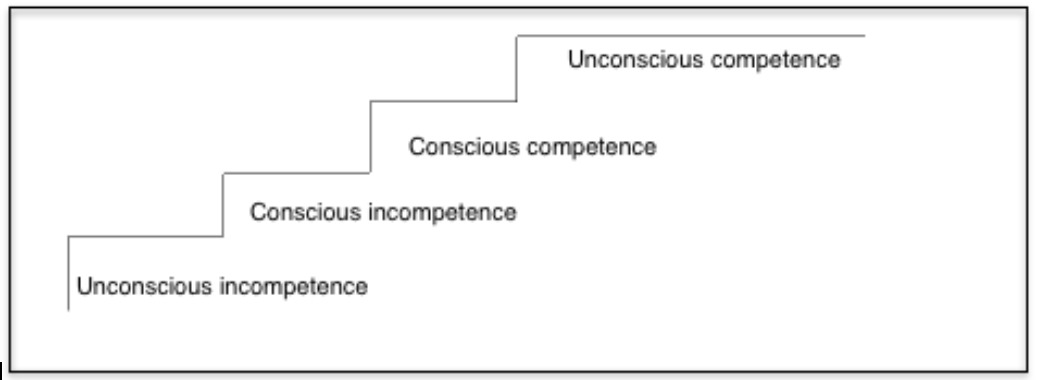Today’s insights are brought to you by my colleague, psychologist, and consultant, Tamryn Batcheller-Adams.
I hate the start of a New Year. For most of January and February, I have this weird, unsettled feeling. Something just doesn’t sit right. I am noticeably more anxious, agitated and a bit withdrawn. This is compounded if the start of a New Year brings with it any other ‘new’ starts, but even without anything actually changing, there is something about transitions that throws me. By mid-March, it has thankfully passed.
Transitions are not easy, they actually require an adjustment to something new and very often require new learning. A new job, or new role at work, a new team, a new home, a new city or country, a new relationship or even a new family dynamic (with the addition or loss of family members).
What I find fascinating is that all transitions require adjustment – even the transitions we really want in our lives or look forward to. There is still this uncomfortable period of time where things feel unsettled at best, and can leave us feeling like we won’t manage, or regretful, at worst.
To counter this feeling, I draw on a framework that is probably one of the best models for managing transitions that I have come across in over a decade of psychology research.
In fact, if you asked me what tool I think is most useful for everyone to know, I would say this one: The Competence Model by Noel Burch
The very essence of what it means to transition is to adjust and learn something new. Burch suggests that the learning of anything new requires a progression through 4 stages. It is stage 2 that usually trips us up, makes us feel inadequate and the desire to give up is most tangible. We wrote about his model in Mavericks: How Bold Leadership Changes the World. But I’ll give you a quick overview:
You start at the bottom of the staircase, in a position of unconscious incompetence. This is like the week before you start at a new job – still excited, perhaps a bit nervous but essentially blissfully unaware of how much you don’t know. Then you start your new transition. Within a few days (or meetings) you realize quite quickly that you are playing ‘catch up’ be it socially, technically, or practically. You begin to realize you are a bit out of your depth and start feeling somewhat lost. The blissful unawareness fades into a less desirable angst. This means you’ve graduated onto step two, conscious incompetence.
Conscious incompetence is the toughest stage. You become consciously aware of how much you don’t know. The challenge ahead of you (whatever that may be) feels like a mountain and this is often when you start to feel a little like you have Imposter Syndrome (feeling like you are faking to others that you are managing okay but internally you are struggling) or start feeling deflated and wanting to give up. Psychologically, the stage of conscious incompetence is the most grueling, because it is where you become most self-conscious of your inability. It is often where you start asking yourself:
“Why did I make this change in the first place? What was I thinking? I can’t do this! I’m out of my depth here! I am not managing! Was this a bad idea?”
Whether it’s moving cities, moving teams, ending a relationship or starting a new one, these are the kind of self-defeating thoughts that run like a treadmill in your mind during this stage. These thoughts can be a point of paralysis, cause a decrease in self-esteem, increase in self-doubt and sometimes you get stuck in them or give them too much credit.
Why this model is so useful is because at this point – where you feel most like quitting – you realise that this is step 2 in a 4 step progression. Very often just realising that this is a stage and not a permanent state can be the thing you need to catapult you out of that self-doubt and negative rumination and onto the next stage. It sounds so simple because it is. There is something about knowing that being stuck is part of the process, a normal process in transitions and adjustments, that we just have to go through it, that then allows us to move out of it. Ironically, it’s the moment of insight in realizing “It’s ok to be stuck” that enables you to get unstuck. Paradoxical but true.
Gradually, you move into conscious competence, in which you begin to see signs of progress. Look out for this stage – it might be as simple as realising that you asked fewer questions as the newbie today than you did last week. Or you didn’t get lost trying to find the nearby shop in your new area, or you have familiarized yourself with a route to your new office, so it doesn’t feel so unknown anymore.
Through these small things, you start to regain a sense of mild confidence that you can cope.
It’s not all smooth sailing yet – your actions and thoughts in this stage of adjustment still require immense cognitive effort and concentration in order for the learning trajectory to continue, but something has shifted and the imposter syndrome doesn’t feel quite so prominent any longer.
As we begin to become more and more proficient in the skills (or routes or habits or ways of being) required, we move into the stage of unconscious competence, where less cognitive effort is required to complete the task at hand. In fact, at this point, you are more likely to feel more confident and start taking charge in areas of your work or life that you have pulled back from in the weeks preceding. It is now that you replace the internal imposter with a more self-assured “I’ve got this” mentality.
Developing unconscious competence is gradual and often not even noticeable. Once you are there you are essentially at a point of ‘non-learning’. The adjustment is complete and what was once unknown has become so familiar it can start to form a habit. This is an extremely comfortable position and often the reason that transitions can feel so hard in the first place is that you might be in this stage and (understandably) not want to change anything.
The take out is this: whether you like change or not, transitions happen.
Good ones, planned ones, tough ones, and unplanned ones. Having a framework to hold in mind when you are in the thick of navigating that change and new learning can make all the difference.
So for me – this framework is golden. It doesn’t take away the discomfort of transitions but it does make me smile every time I catch myself not coping and then the penny drops once more and I remember “ah this is the conscious incompetence stage, I’ve been here before I can manage this again”. Just remembering that makes all the difference in actually navigating the transition effectively.
Please get in touch if you would like to order copies of the book Mavericks: How Bold Leadership Changes the World that Tamryn co-authored. The book is available from Amazon and Takealot or our team could send books directly to you.
Mavericks: How Bold Leadership Changes the World is a book about people who look at the world and think, “we can do better than this” and then seek to do something about it. We were fascinated by what makes some people ‘see’ where things can be better? What propels them too actually ‘do’ something? What makes them bold enough to go against the grain? Be different? Challenge the status quo? It turns out, after hundreds of hours’ worth of interviewing that there are in fact a few foundational and teachable traits. Woven together these traits create a mental framework for what we have called Maverick Leadership.”
“This book is truly liberating! Armed with a Maverick mindset, ordinary people can become inspirational leaders. Packed full of practical examples, this is a ground-breaking toolkit that awakens the characteristics within, so you can become an inspirational and Maverick leader. Mavericks gives you the inspiration to say ‘I can’ and the confidence to say ‘I will’. Bravo!” – Jez Groom, Founder, and CEO of Cowry Consulting.
Tamryn Batcheller-Adams is a psychologist, leadership presenter, consultant, author and coach working internationally with TomorrowToday Global. As a practising psychologist with two Masters’ degrees in psychology, Tamryn focuses on leadership, team and individual development.
Having worked with leaders across 20 countries, Tamryn utilizes frameworks with a focus on building adaptability, emotional agility, resilience, stress management, self-awareness, social awareness and team cohesion to enhance personal, professional and collective growth. She co-designs, facilitates and coaches in Senior Executive Leadership Programmes and is a registered Enneagram (personality) specialist based in Cape Town, South Africa.



